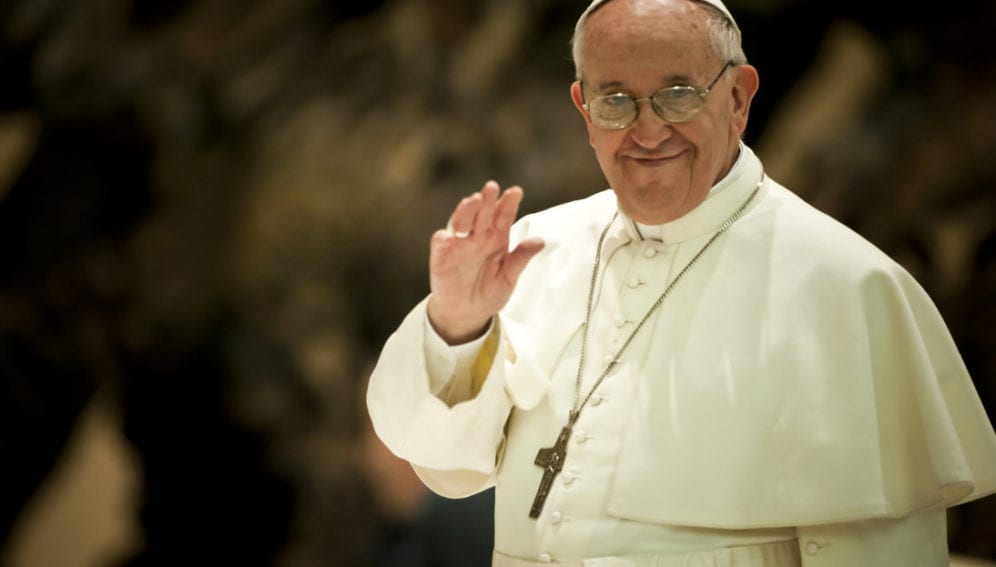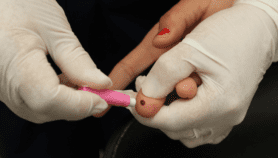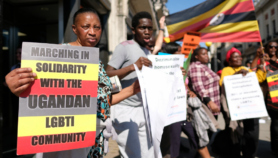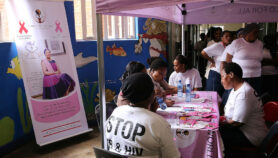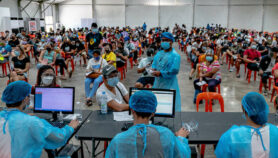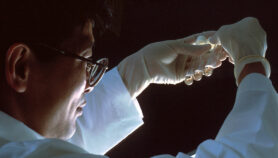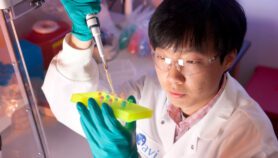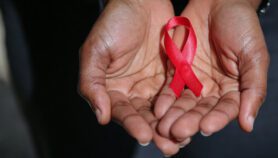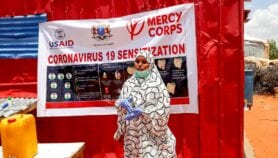By: Imogen Mathers
Send to a friend
The details you provide on this page will not be used to send unsolicited email, and will not be sold to a 3rd party. See privacy policy.
There are high hopes that Pope Francis I will usher in an era of health reform and social activism, but doubts remain, finds Imogen Mathers.
As the dust has settled on the cardinals’ choice of pope for the Catholic Church, the gaze of the development community remains fixed on the Argentinian now at the Vatican helm.
With the sector gearing up for World Health Day this weekend (7 April), debates continue about what changes — if any — Pope Francis I will make to the world's largest Christian church, and whether as a chemistry graduate and Jesuit scholar he will be more open to scientific dialogues on critical health and social issues.
Catholic Church-affiliated organisations run aid, health and education programmes across the world, and the church maintains formal diplomatic relations with 180 nations and has observer status at the UN, so its stance on key development issues is of great significance.
There are many other pressing questions: will this self-professed 'pope of the poor' usher in an era of radical altruism, pushing poverty alleviation to the fore and making good on his promises of the past few weeks? Or will he see his stated allegiance to the world's most marginalised communities broken on a wheel of Vatican infighting and bureaucracy?
Time will tell. For now, the hope is that Pope Francis's pledge to the poor can, and will, translate into practicable social action.
Much has been made of the former archbishop's upbringing in the global South, his modest lifestyle and his outspoken stance on diverse social and economic issues — from human rights abuses and the "city slavery" rife in Buenos Aires, to gender-based violence and the darker reaches of neoliberal capitalism.
His robust blend of humility and human rights activism have brought hope to those despairing that the Vatican would ever fully use its hefty influence to create a better, fairer world.
"We know he is very strong on social justice; a simple, humble man," Chris Bain, director of Catholic development agency CAFOD, told the Guardian last month. "I hope he will put global poverty, climate change and environmental development higher up the church agenda." [1]
Francisco Hernández, regional coordinator for Latin America and the Caribbean for Caritas International, the Catholic Church's official humanitarian and development arm, has spoken of his hopes for a "universal pope who will really care about the whole world". [2]
Scientific openness
Among those people and groups working to put science at the heart of development, Pope Francis's choice of environment-savvy namesake, his chemistry background and the Jesuits' customary championing of scholarly rigour have been touted as heralding a renewed Vatican engagement with science.
A recent Nature editorial expressed tentative hopes that Pope Francis would build on the spirit of enquiry that has defined the Vatican's engagement with science — on some issues at least — from the late twentieth century onwards. [3]
"Scholarship is just part of being a Jesuit," says James Matarazzo, co-chair of the Faith Working Group at the UK Consortium on AIDS and International Development.
"Jesuits are known for their educational institutions, many of which are world class," he tells SciDev.Net. The eight- to 14-year Jesuit 'formation' involves intensive academic study across wide-ranging disciplines — sciences and medicine as well as the humanities — and Jesuits teach and guide academic strategy at both Catholic and secular institutions across the world.
In the past, prominent Vatican Jesuits have spoken publicly about their commitment to scientific enquiry: in a speech to the Glasgow Science Centre, United Kingdom, in 2006, the in-house Jesuit astronomer Guy Consolmagno remarked that "religion needs science to keep it away from superstition and close to reality, to protect it from creationism".
Matarazzo says the popular perception of religion and science being at loggerheads is often not applicable to the Vatican. "The Vatican sees science and faith as separate but complementary entities," he says. "It is fairly open-minded when it comes to basic scientific enquiry in many areas, and issues like Darwinian evolution are simply not an issue for them."
When it comes to less controversial issues, then, Matarazzo predicts that Pope Francis's support for scientific enquiry will be a "very positive" continuation of a modern papal legacy of being "fairly proactive and pro-science".
Damaging obstinacy
Of course, Catholicism and scientific research are not always such happy bedfellows.
Recently publicised hopes for buoyant scientific debate in the church have been tempered by the caveat that Francis's position on birth control, sexuality and abortion will likely remain yoked to a narrow doctrinal conservatism, carrying far-reaching implications for research and social programmes in the developing world.
"When it gets to things that fundamentally challenge doctrine, like stem cell research involving aborted foetuses, then the church starts to harden," Matarazzo says.
Globally, and especially within the development sector, there has long been despair at Catholicism's uncompromising over condom use for HIV/AIDS prevention, as well as other urgent health-oriented and social issues.
In parts of the world where strong religious observance sits alongside entrenched poverty and high HIV prevalence, the church's role is potent, affecting social practice, health funding, support for research, education and many other issues.
While the Vatican may have slightly softened its line on condom use over the past decade, the shift has not been substantial. In 2010, Pope Benedict XVI said that condoms could, in some circumstances, be morally justified to reduce the "risk of infection — a first step in a movement toward a different way, a more human way, of living sexually".
The pronouncement flustered some in the church's conservative ranks, but for many was seen as heralding hope that the long-sought sea change regarding the church's position on contraception and HIV might soon be forthcoming.
'Lifting the ban'
Alice Welbourn, founding director of the Salamander Trust, which campaigns on HIV, gender and reproductive health issues, believes that allowing condom use would be the single most important thing the new pope could do.
"If Pope Francis lifted the ban on condoms, at one stroke he could also protect the lives of millions of Catholics worldwide, [and help prevent them] from acquiring HIV and many other sexually transmitted infections, some of which, such as chlamydia, also cause infertility," she tells SciDev.Net.
"Condoms are life-savers: they have kept people with HIV, myself included, from sharing this virus with our lifelong partners, who are also our carers when we get sick," Welbourn says. "Condom use in a time of AIDS just makes eminent sense."
Opinion is divided about whether Pope Francis will take a more realistic approach to teaching on condom use.
Matarazzo thinks the pope will show a "willingness to engage" in pragmatic approaches to HIV prevention, but fall short of "making any kind of fundamental changes on birth control".
Until the "firm stand" Welbourn hopes for proves forthcoming, many in the church and affiliated charities are taking pre-emptive action that diverges from the party line.
In staunchly Christian countries across the developing world and particularly in Sub-Saharan Africa, relief agencies, and even some Catholic bishops, have been known to promote and distribute condoms free of charge in a desperate bid to save lives, Matarazzo says.
There is a pragmatism at the grass-roots level that may not always tally with that of the upper parts of the church hierarchy, he says.
Support for a greener world
Across the media and development sector, there are also hopes that a commitment to environmental protection will be a strong focus of this pontificate. The 'Human Development Report 2013', published by the UN last month, warned that "environmental threats are among the most grave impediments to lifting human development", and that a further three billion people could be thrust into poverty without "co-ordinated global action". [4]
Many hope that the new pope will use the church's influence to refocus attention on links between environmental insecurity and poverty.
"My guess is he will take the line that poverty and climate change are interrelated," says Matarazzo. "I imagine his main concern will be that any effects in global climate will adversely affect the poorest."
But beyond public pronouncements, symbolic gestures and sermonising, what mechanisms can the new pope use to promote the role of science in development, and a wider commitment to humanitarian development?
Many of the 160 Vatican-affiliated agencies worldwide work at the interface of research and development, with scientific developments feeding into and shaping programmes from healthcare provision to climate change adaptation. And the church has other important avenues influencing policymaking.
The Holy See — the episcopal government of the Catholic Church in Rome — maintains formal diplomatic relations with 180 nation states and intergovernmental organisations, including the European Union.
Since 1964, it has also been a permanent observer state at the UN, a channel it has used to attempt to shape policies on issues ranging from GM crops to HIV/AIDS. Holy See representatives, including the pope's two immediate predecessors, have made formal policy statements and addresses to the UN General Assembly and are permitted to participate in private policy negotiations.
Controversial position
Inevitably, this has frequently stirred controversy, with critics berating the church for its closeness to US conservative policy and its stance on HIV/AIDS and birth control, alongside regular accusations of a dangerous receptivity to corporate lobbying — from agri-biotech multinationals for example.
Experts predict that Pope Francis will be acutely aware that the Holy See's special UN access is a channel to be used adroitly.
And, as the international community shifts its focus to post-2015 — the Millennium Development Goal target date — many in the Catholic development sector hope that the Vatican and the human rights advocate now at its helm will flex their muscle to help shape the UN's next set of development targets: the Sustainable Development Goals.
UN secretary-general Ban Ki-moon has said that he hopes the UN and the Vatican can work together on "core elements of sustainable development". The question is whether this will prove politically possible, and, indeed, beneficial, to the world community.
However, there are also fears that the pope's relative inexperience in geopolitics will render him vulnerable to manipulation.
The coming years will prove a litmus test for the pope's capacity to negotiate and balance the many conflicting demands of his rapidly burgeoning and socially diversifying juggernaut of a church.
Meanwhile, across the world, there is tentative optimism that Pope Francis's tenure at St Peter's will be characterised by a courageous, committed empathy, and that he will use the church's influence to help improve the lives of billions living in poverty and usher in a new dawn for a better, fairer world.
References
[1] Poverty Matters Blog Will Pope Francis's appointment be a positive step for poor countries? (Guardian, 14 March 2013)
[2] Pasquini, E.L. New pope: good for the poor? (Devex.com, 14 March 2013)
[3] Editorial A pope for today (Nature, 19 March, 2013)
[4] United Nations Development Programme Human Development Report 2013 (UNDP, March 2013)


